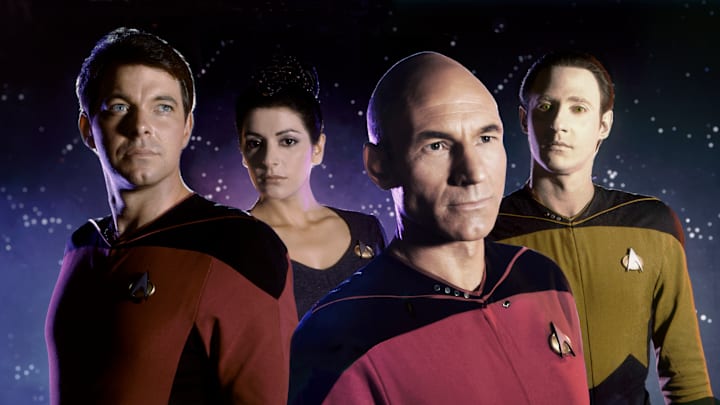
Data - Continued
Of course, without an emotion matrix of his own, Data could not experience the grief from the loss of a child, but again the creators were exploring his struggles with wanting to be human and his need to experience human emotions. These continued epilogues of Data’s lack of an emotion chip were overused, and of course eventually (no surprise) Data gets an emotion chip from Dr. Soong in the movie “Star Trek: Generations.”
Now Data’s journey has shifted from his urge to want to experience human emotions to his struggles of coping with his logical and rational positronic brain against his newly programmed human emotions. Ironically, Data once became anger and frustrated with himself, because he could not control his emotions. By the end of “Generations” Data decides to remove the emotion chip because he’s overwhelmed with trying to control his emotions.
The ongoing "it's in, it's out" saga of Data's emotion chip is a tedious narrative across several TNG movies. This exaggerated and overpromoted storyline of Data learning something new about humans and human emotions in almost every TNG episode or movie is derivative, trite and well-worn. It reminds me of the familiar fairytale of a non-human entity or machine that wants to be human, similar to Pinnochio who wants to be a real boy, or the Tin Man in Wizard of Oz, who wants a heart to be more human.
Aside from Captain Picard, when you consider which TNG crew member most often saves the ship more than any other – it's Data. This narrative of a perfect artificial intelligent being is another cliche of Data’s characteristics. Data’s hyperbolic sense of perfection and superiority despite his need for an imperfect sense of human emotions is often at odds and certainly often overplayed.
Data’s is a sentient machine capable of superhuman displays of strength and intellect; however, his usually unwavering heroics and perfectionist antics can be idealized and leveraged too much in TNG storylines. The aggregate of Data’s portrayals of perfection and superiority; his turmoil with wanting emotions; and his frequent brilliant starship-saving antics all support him as one of Star Trek’s top 3 overrated characters.
